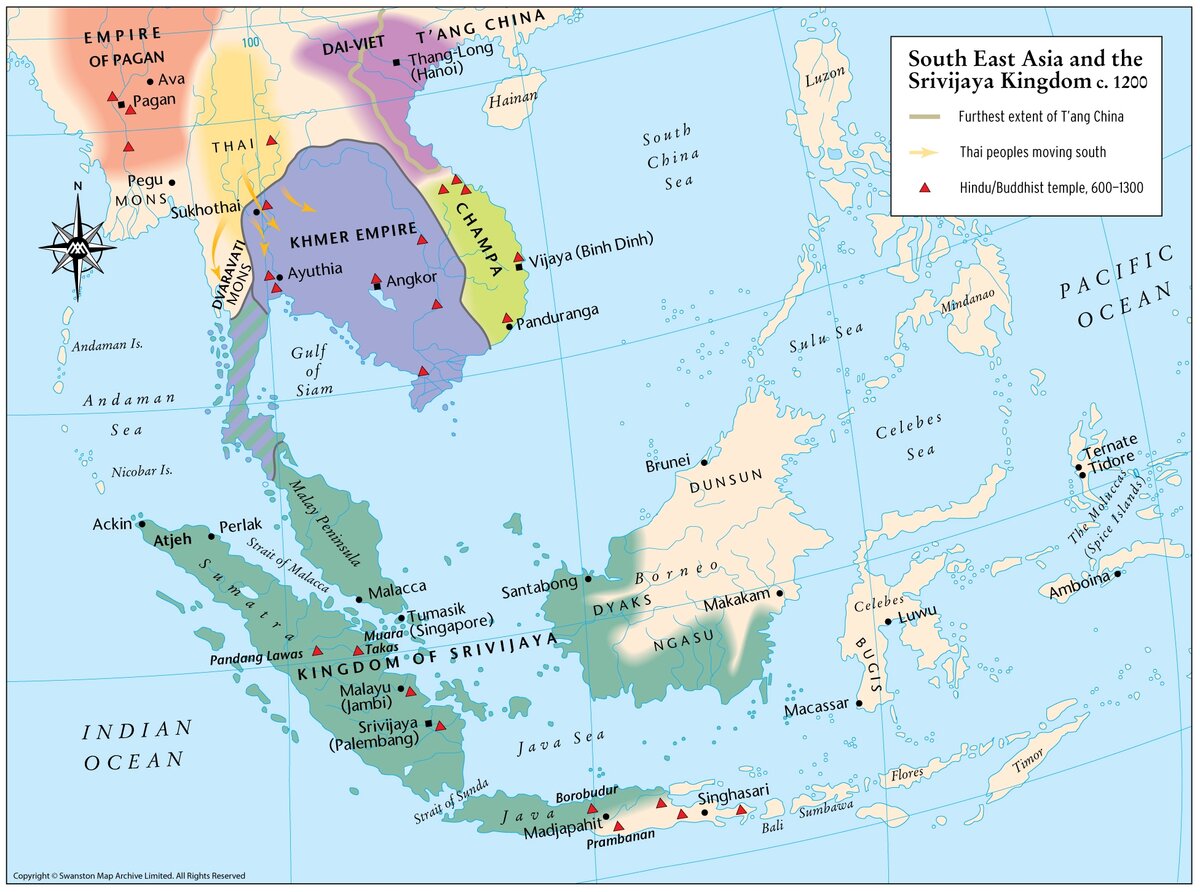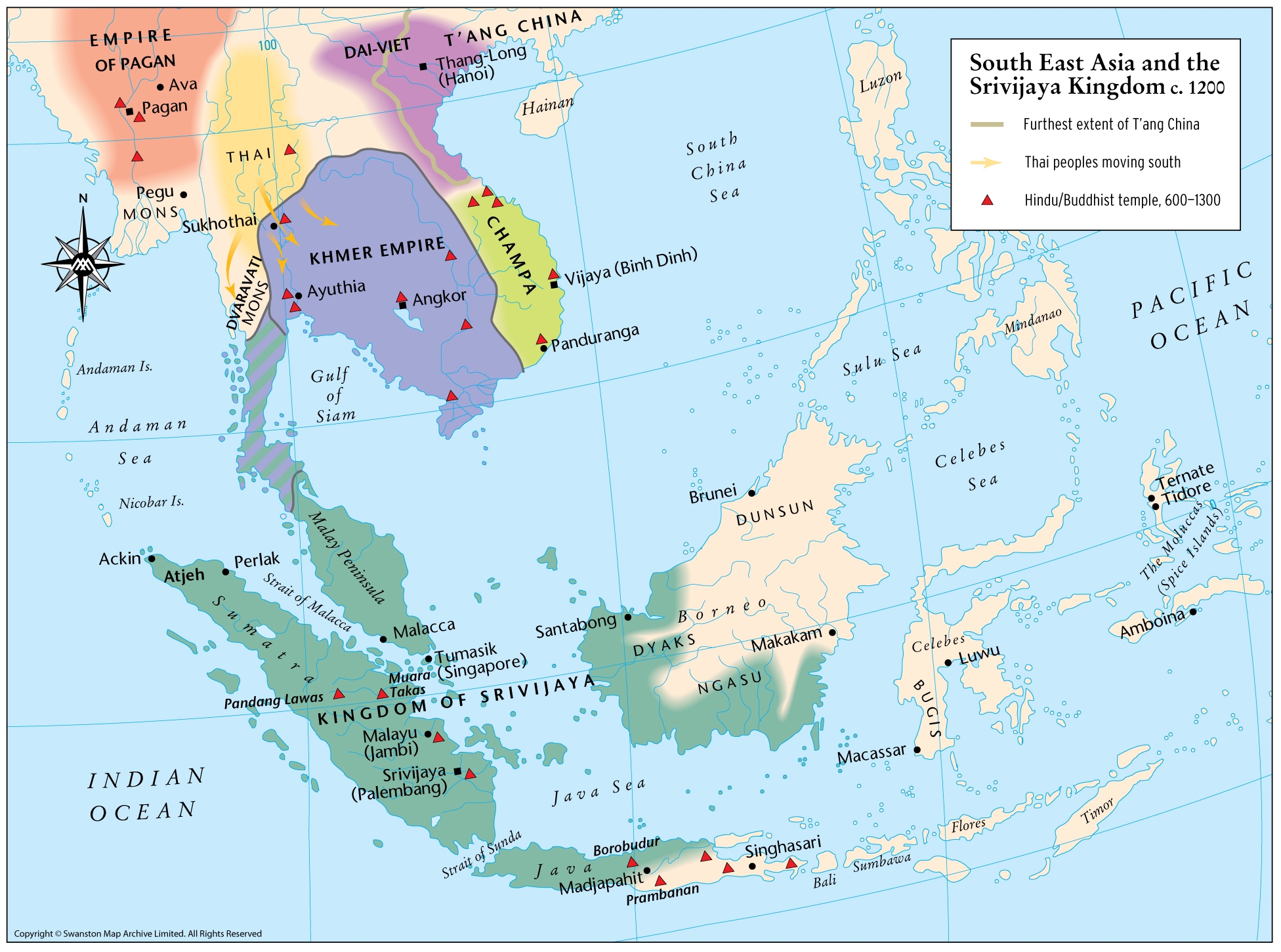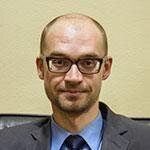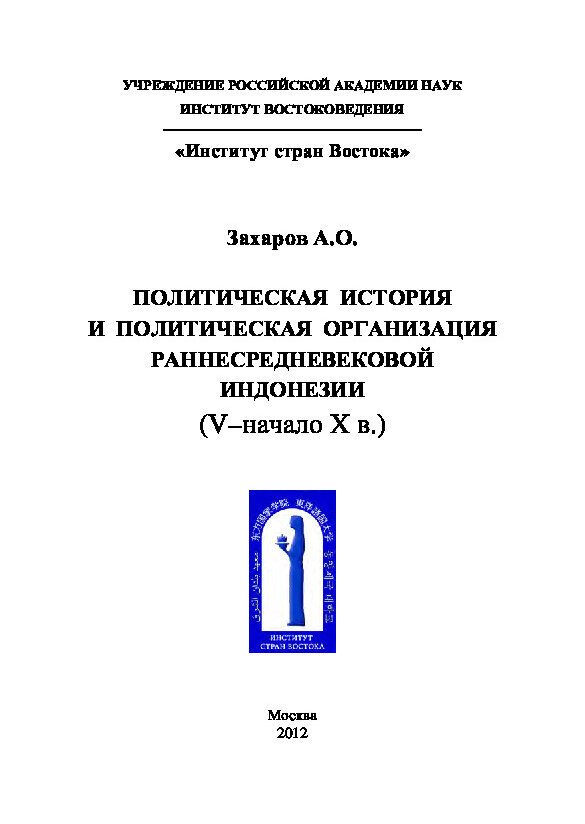Политическая история и политическая организация раннесредневековой Индонезии (V–начало X в.) | Early Indonesian States, 5th-10th centuries
by Anton O. Zakharov
На островах Индонезии в V–VIII вв. сложились индиани-зированные ранние государства.

- Publication
- Институт востоковедения РАН, НОЧУВПО «Институт стран Востока» | Oriental Studies Institute, Moscow | Digital Edition «Белый ветер»
- Published
- 2012
- Author
- Anton O. Zakharov
- Pages
- 202
- Language
- Russian
pdf 1.5 MB
This monograph reconstructs political history and institutions of early kingdoms of Borneo, Sumatra, and Java. Dealing with contemporary theories of statehood and political organization, it examines different influential theories on the formation of Southeast Asian states, among them the galactic polity by S. Tambiah, the maṇḍala theory by Oliver Wolters, and the bhūmi theory by Hermann Kulke.
It also deals with the Srivijaya polity, the influence of which in the Indochina Peninsula has been studied by George Coedès, and investigates the Śailendra dynasty.
Concludes the author: “The kings of Ancient Java were autocratic. The state formation in maritime Southeast Asia was inextricably intertwined with warfare. All early rulers conquered their neighbours and thus became kings. The Indianization of early kingdoms was a means to power and varied in different places and times.”
With Russian translations of earliest Sanskrit inscriptions from Borneo and Western Java (Mulavarman in Borneo, Purnavarman (Tarumanagara) in Western Java), as well as some Central and Eastern Javanese inscriptions, including the Canggal, Dinojo, and Kalasan records.

Photo: Srivijaya Sea Empire and Southeast Asia, 11th century (Source: The Map Archive/Angkor Database)
Tags: Java, Sumatra, Srivijaya, Indianization, state formation, maritime routes
About the Author

Anton O. Zakharov
Anton O. Zakharov (Антон O. Захаров) is a fellow researcher at Institute of Oriental Studies, Russian Academy of Sciences, Moscow, State University of Psychology and Education and Oriental University, Moscow, Russia.
He is thre representative of the Russian Federation in the Board of the European Association of Southeast Asian Studies (EuroSEAS) since 2010, and a member of the Russian Oriental Society.

